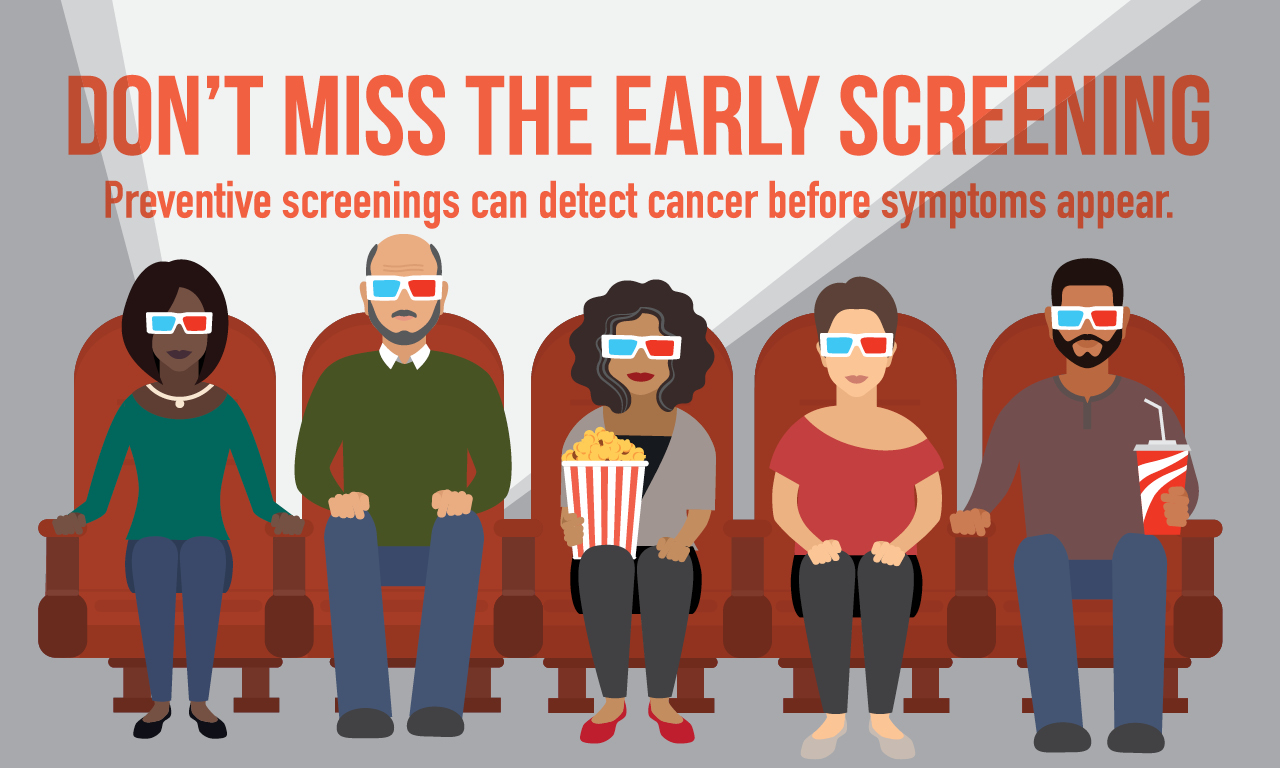Don’t Miss the Early Screening
Early screenings aren’t just for the movies! When it comes to cancer, early screenings save lives. If you have a family history of cancer — especially breast, colon or cervical cancer — you should consider preventive cancer screenings. Mammograms, colonoscopies and Pap tests look for abnormalities that may be cancer or precancerous cells. When these cells are found early, your health care team can begin treatment before serious symptoms appear.
Why Should I Be Screened?
Thanks to an increase in preventive screenings, the overall cancer rate in the United States fell by 13 percent between 2004 and 2013 and have continued to decline. This is especially good news for women’s health. Since the number of women having regular Pap tests has increased over the past 40 years, cervical cancer is no longer the leading cause of death for U.S. women. Measures to detect and treat breast cancer have also reduced the mortality rate for women in the U.S. by 38 percent from 1989 – 2014. We could prevent 50 percent of colorectal cancer deaths with screenings. And a colonoscopy is the only screening test that can stop colon cancer by letting the doctor remove precancerous polyps during the exam. Ask your doctor about your risk for cancer and if you should be screened.
When Should I Be Screened?
Talk to family members about your family’s health history. If any close relatives — parents, siblings or grandparents — have had cancer, you should discuss earlier screenings with your health care team. People with no family history of cancer can follow these recommended guidelines:
- Beginning at age 21, women are advised to have a Pap test every three years.
- Starting at age 40, women should consider having a mammogram every one to two years. Talk to your doctor about when you should schedule your mammogram.
- For women and men 45 or older, colonoscopies are recommended every 10 years. Talk to your doctor about alternative colon cancer screening tests.
Can I Reduce My Cancer Risk?
You can’t completely foil cancer, but there are actions, besides screenings, that can reduce your risk. Take as many of these steps as you can, not only to be healthier, but to reduce your risk of cancer:
- Maintain a healthy weight.
- Be physically active at least 30 minutes, five times a week or more.
- Eat a healthy diet full of leafy greens and antioxidants.
- Reduce or eliminate alcohol and nicotine.
Making positive lifestyle changes and participating in early screenings can improve your chances of beating cancer if it does occur. These same lifestyle changes can also increase the odds of living a healthier, longer life. So please — get screened.





















